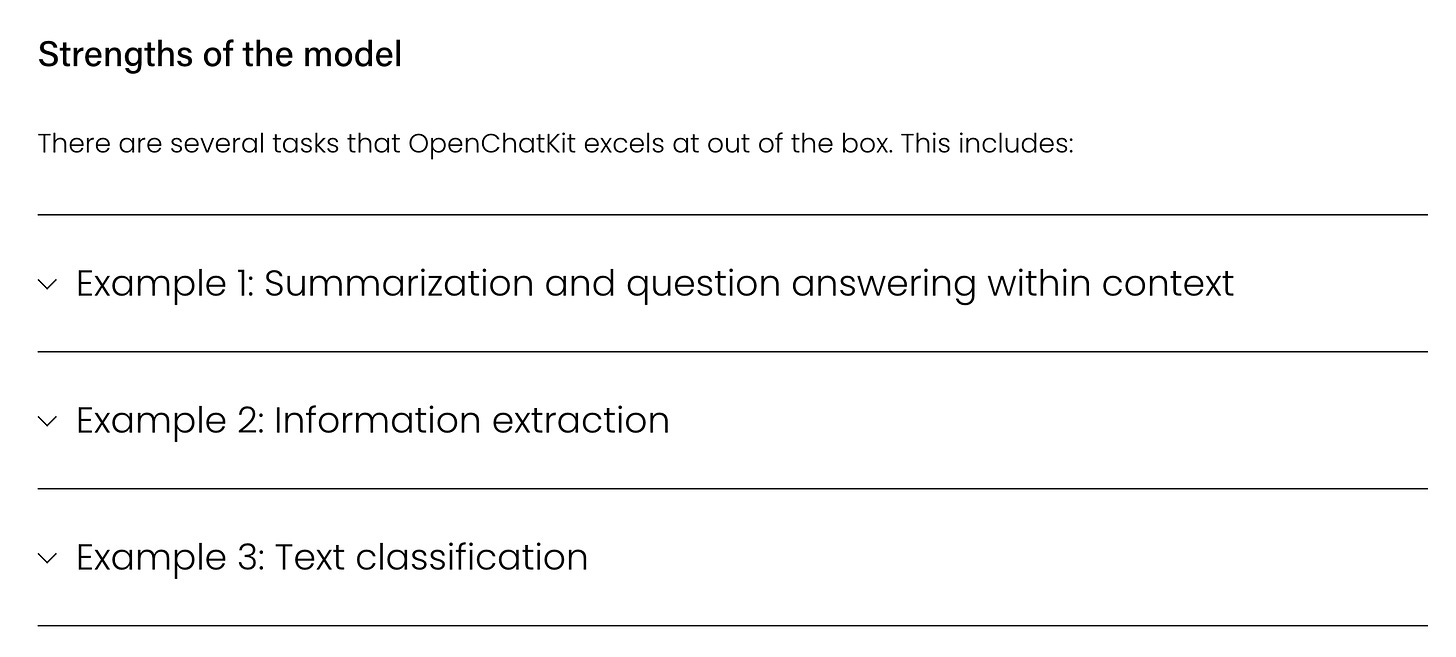OpenChatKit, an open-source alternative to ChatGPT, is released to public
Together, another startup formed by OpenAI alumni, has released an open-source alternative to ChatGPT called OpenChatKit. You can try out their model here.
The team collaborated with LAION and Ontocord to build the training dataset. OpenChatKit's chat model, which boasts 20 billion parameters and underwent training on 43 million instructions, supports various functions such as reasoning, multi-turn discussion, knowledge, and answer generation.
According to their release announcement, the model has strengths in these areas:
On the other hand, the model isn’t good at fact-based Q&A, coding tasks, creative writing, etc. due to the dataset it was trained with. While ChatGPT does a reasonably good job on coding tasks and creative writing, it struggles with fact-based Q&A. These LLM-based chatbots are known for “hallucinating”, making up facts on the fly.
Given that it’s an open-source model, companies might explore the possibilities of integrating it into their products for these reasons:
Cost - OpenAI’s InstructGPT (powering ChatGPT) costs $0.002 / 1K tokens. If companies are able to run OpenChatKit at a cheaper rate, they have a huge financial incentive to migrate.
Control & Customize - Companies can train it for specific use cases. For example, startups like Robin AI are using AI in the legal industry. By adopting OpenChatKit instead of ChatGPT, they can build a tailored model to serve their customers better and a stronger moat with the data they own. VCs are also more interested in a team that has technical expertise in customizing their models than a startup that is simply a wrapper around ChatGPT.
Privacy & Safety - Many large companies are reluctant or prohibited to use ChatGPT due to data privacy reasons. They have concerns about how OpenAI is using their data to train or fine-tune their models. Also, they might have rules about where data can be stored and retrieved; for example, data must never leave their own servers.
While there are concerns about open-source models being abused by hackers and scammers, I’m largely supportive of it. In technology, we should bet on different technical approaches since we never know which approach is going to win over developers. Some companies believe AI models are safer if they are kept closed-source, but technology is never bulletproof if there’s no feedback from the public. There are also concerns that companies are less likely to publish their research due to increasing competition in the AI industry. Having a vibrant open-source community serves as a counterbalance to the changing environment.
Lastly, we are expecting more updates on GPT-4 this week. The industry expects it’s going to be multi-modal, meaning the model can handle image or video-related tasks. If you want to get the latest updates on GPT-4, please subscribe to our newsletter!




